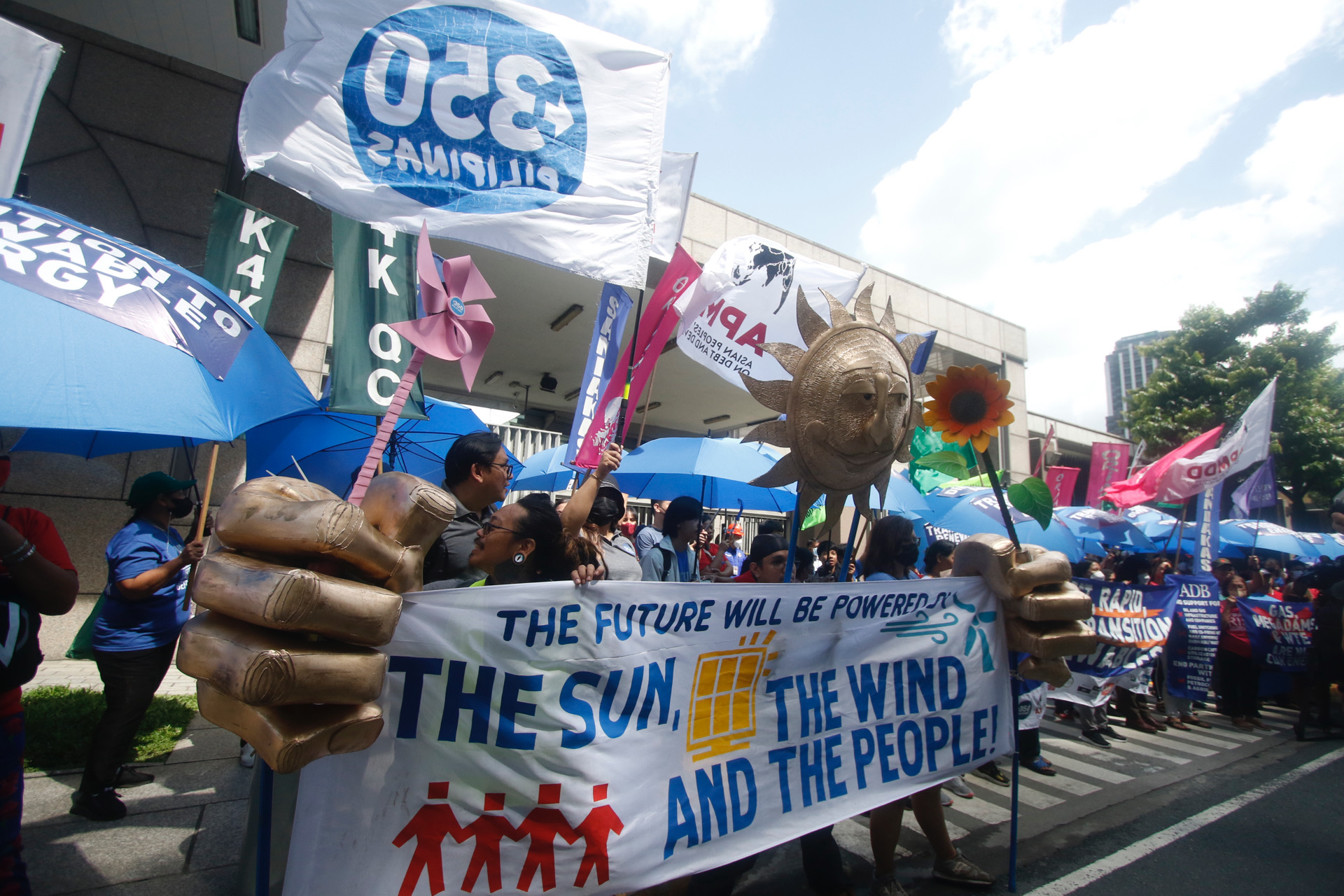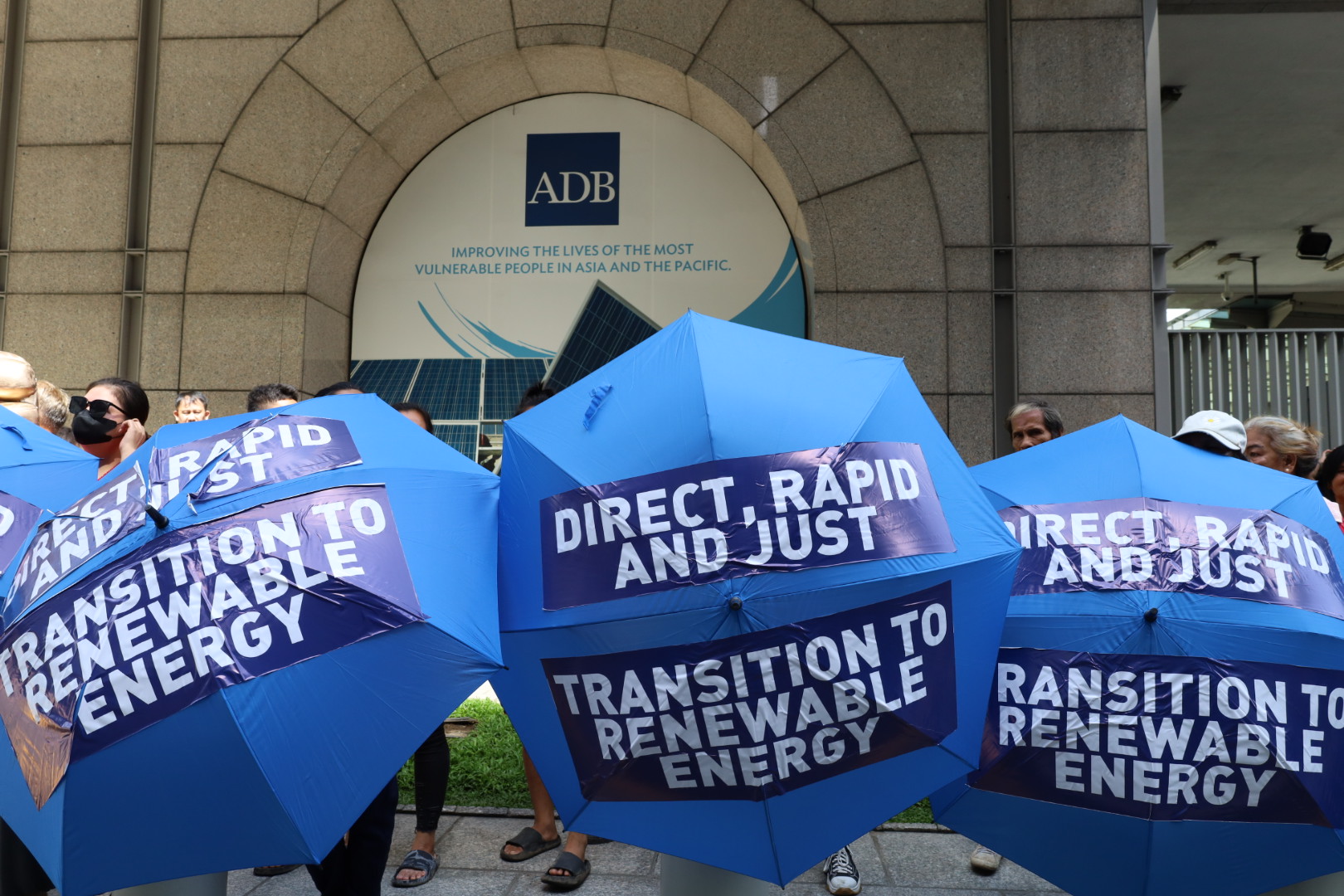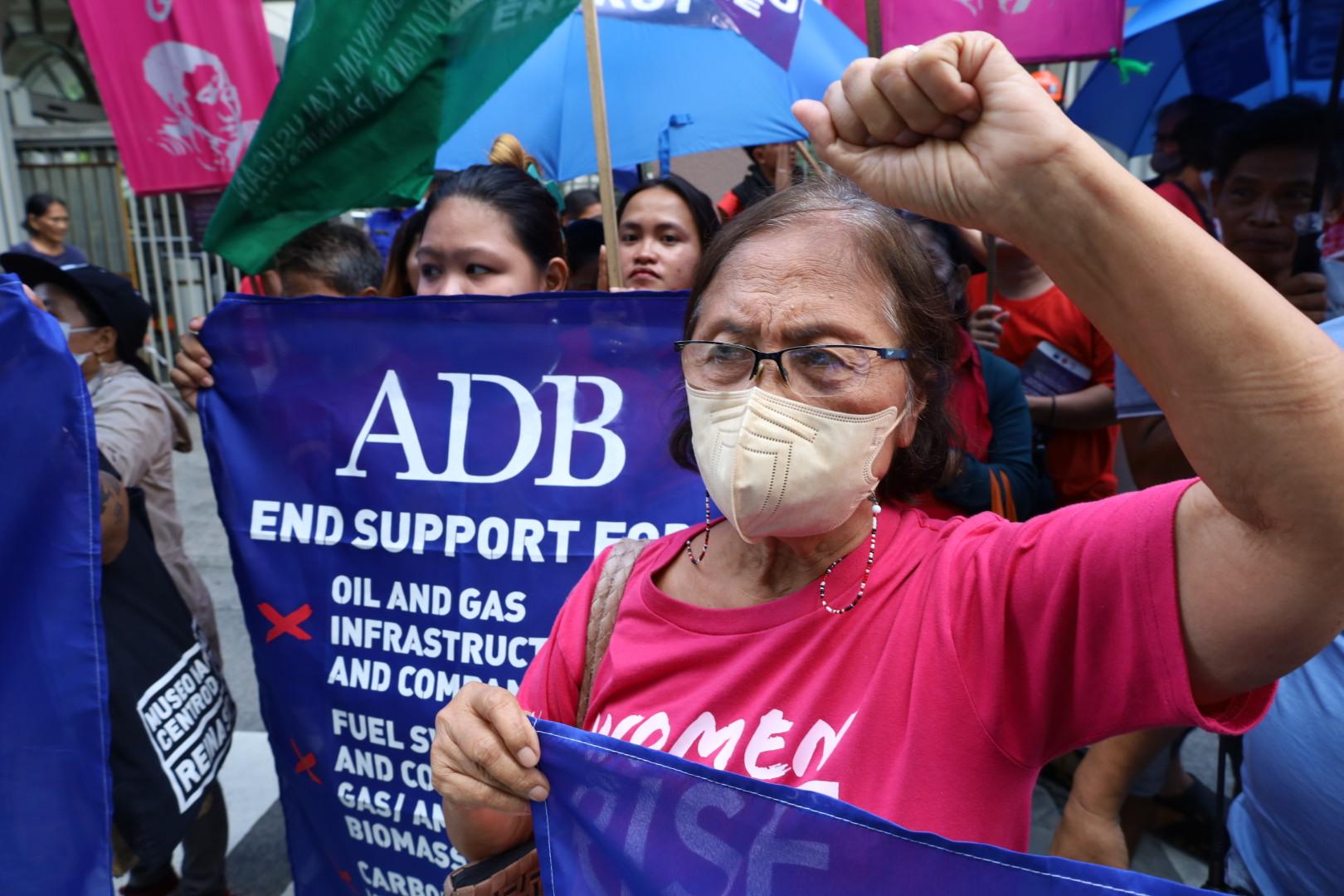Chuck Baclagon
Today, I stood alongside 350 Pilipinas and a diverse group of passionate individuals and organizations as we raised our voices in protest at the Asian Development Bank (ADB) headquarters. We aimed to challenge the status quo at the 18th Asia Clean Energy Forum (ACEF). This event brings together clean energy practitioners from various sectors to discuss the path towards carbon neutrality in Asia and the Pacific.
However, what troubled us was the emphasis placed on national and multinational corporations as the leaders in the energy transition. This approach heavily relies on large-scale infrastructure like fossil gas as a transition fuel to replace coal plants as well as mega-dams, waste-to-energy, hydrogen and not to mention experimental technologies like, ammonia co-firing and carbon capture and storage – that are not sustainable from environmental, social, and economic standpoints. Witnessing the ADB consistently promoting a corporate-led energy transition was disheartening, disregarding the urgent need to phase out support for fossil fuels and unsustainable energy projects.

Civil society organizations and communities that gathered in front of the Asian Development Bank headquarters of where the 18th Asia Clean Energy Forum (ACEF) is being held from June 13th to 16th. Photo: Aurora Malaya
The danger lies in their tendency to cling to silver-bullet fixes based on ideas drawn from science fiction. This misguided optimism does more harm than good, diverting our attention from the real and readily available solutions that can make a tangible difference.
From our standpoint, the path to avoiding catastrophic warming is clear: we must keep fossil fuels in the ground and swiftly transition to 100% renewable energy. The encouraging news is that renewable energy is becoming more affordable and popular each day. As renewables grow, they provide us with cleaner, free energy that can effectively replace fossil fuels.
We are racing against the clock to implement interventions that genuinely reduce emissions and address real-world problems. The intersection of energy and the climate crisis with systemic injustices affecting the majority of our global population demands urgent action in the here and now.

The activists called on the multilateral development bank to commit to an urgent phase out of support for fossil fuels as well as to end support for unsustainable carbon and resource-intensive energy projects. Photo: Aurora Malaya
At this year’s ACEF, we were presented with proposed solutions that relied heavily on optimistic thinking and assumed that mere technological fixes would be sufficient. However, true decarbonization requires a comprehensive approach that goes beyond superficial solutions. We need to eliminate fossil fuels entirely to reduce emissions and ensure greater access to energy by leveraging decentralized renewable sources like wind and solar power.
Our objective should be to transform the financial system, making clean, reliable, and affordable energy systems the priority. This paradigm shift will lead us towards a future free from fossil fuels, benefitting both people and our planet.
Together, we must challenge the prevailing narrative and push for tangible change. Institutions like the ADB must reassess their approach and recognize the urgency of embracing a fossil-free future. By severing ties with oil, gas, and other extractive industries and redirecting support towards renewable energy projects, the ADB can become a catalyst for sustainable and equitable energy transitions throughout the region.

The goal is to transform the financial system to prioritize clean, reliable, and affordable energy systems, ultimately achieving a fossil-free future that benefits both the people and our planet. Photo: Aurora Malaya
